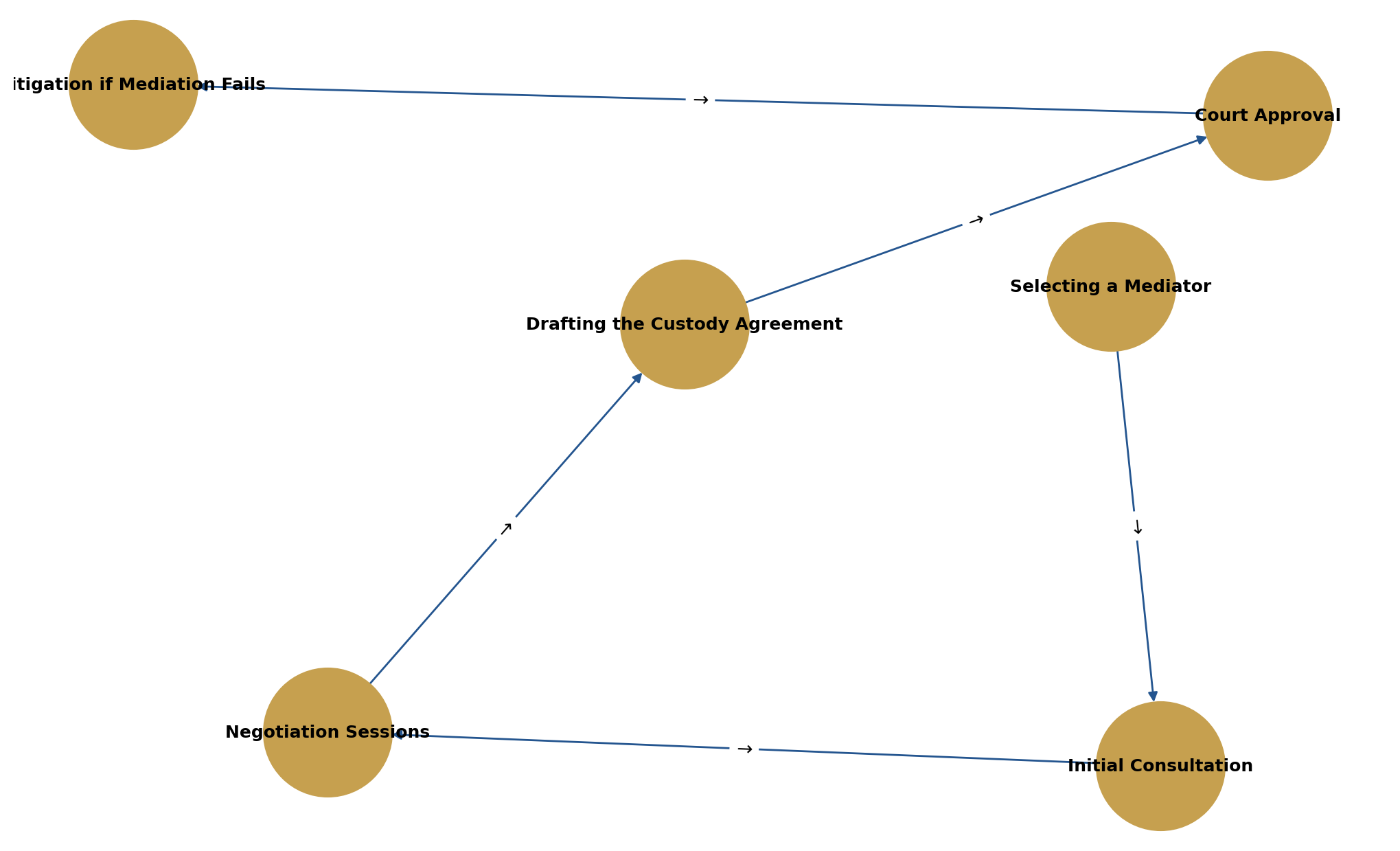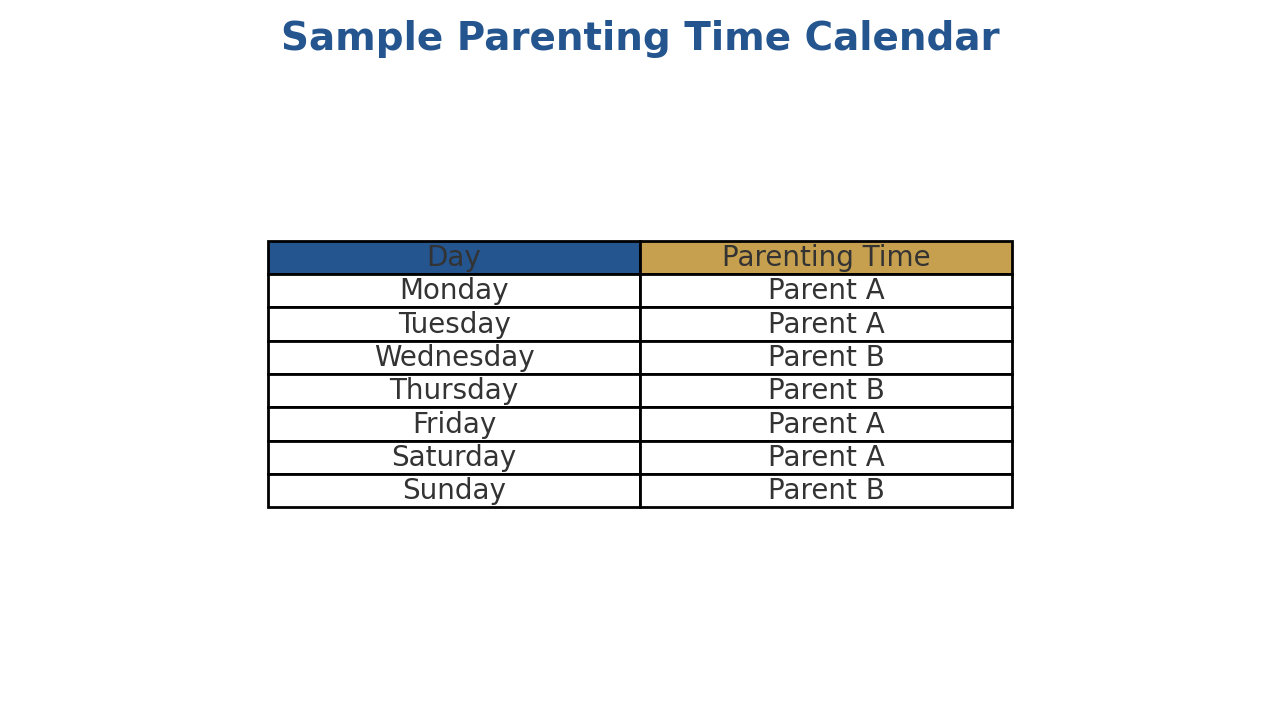Introduction
Divorce is never easy, but when children are involved, the stakes become even higher. Parents navigating custody disputes often face emotional turmoil, legal complexities, and concerns about their child’s well-being. While courtroom battles can be contentious and costly, child custody mediation in New Jersey offers a more amicable path forward.
Mediation allows parents to work together to create a custody arrangement that prioritizes their child’s best interests. Instead of leaving critical decisions in the hands of a judge, mediation fosters open communication, compromise, and a cooperative co-parenting strategy. In this guide, we’ll explore how custody mediation works in NJ, its benefits, and how to prepare for a successful mediation process.
Mediation allows parents to stay in control of their child’s future—without letting a judge decide for them.
What is Child Custody Mediation?
Child custody mediation is a structured negotiation process where divorcing or separated parents work with a neutral mediator to create a parenting plan. Unlike litigation, where a judge makes custody determinations, mediation gives parents the power to reach an agreement that suits their family’s unique needs.
How Does Mediation Differ from Litigation?
- Less Adversarial: Mediation promotes cooperation rather than conflict.
- Faster Resolution: Court cases can take months or years, whereas mediation can be resolved in a matter of weeks.
- Lower Costs: Mediation is typically less expensive than litigation.
- Greater Flexibility: Parents maintain control over the outcome rather than having a judge impose a decision.
In New Jersey, mediation is often encouraged by family courts, especially when both parents are willing to negotiate in good faith. In some cases, the court may require parents to attend a court-mandated mediation session before proceeding with litigation.
| Factor | Mediation | Litigation |
| Cost | Lower – typically $3,000 to $7,000 per case | Higher – often exceeds $15,000+ per person |
| Time | Faster – resolved in weeks to a few months | Longer – can take months to years |
| Conflict Level | Encourages cooperation and open communication | Adversarial – increases conflict and tension |
| Decision-Making | Parents control the outcome | Judge decides custody and parenting time |
| Privacy | Confidential, kept out of public record | Court proceedings are public |
| Emotional Impact | Less stressful for children and parents | Can be emotionally draining and hostile |
Best For:
- Mediation: Parents who can communicate, compromise, and focus on the child’s best interests.
- Litigation: Cases with high conflict, uncooperative parents, or safety concerns (e.g., domestic violence).
The Benefits of Child Custody Mediation in NJ
Choosing mediation over litigation offers several advantages for both parents and children:
- Protects the Child’s Emotional Well-Being: Children benefit when parents work together amicably rather than engaging in prolonged legal battles.
- Encourages Co-Parenting: Mediation helps parents develop a cooperative co-parenting plan, reducing future conflicts.
- Provides Personalized Solutions: Parents can create a tailored parenting schedule that works best for their family dynamic.
- Reduces Stress and Anxiety: Mediation fosters a more peaceful resolution, minimizing stress for both parents and children.
- Confidential Process: Unlike courtroom proceedings, mediation remains private and off the public record.

Flowchart: “The Child Custody Mediation Process in NJ
The Child Custody Mediation Process in NJ
Mediation follows a structured process to ensure both parents have the opportunity to express their concerns and reach a fair agreement.
Step 1: Selecting a Mediator
Parents can choose between:
- Court-appointed mediators: Typically free or low-cost, but sessions may be limited in time.
- Private mediators: Offer more personalized attention but come with additional costs.
Step 2: Initial Consultation
- Parents meet with the mediator to discuss expectations, goals, and key issues.
- The mediator explains NJ custody laws and how mediation works.
Step 3: Negotiation Sessions
- Parents discuss parenting time schedules, holiday arrangements, education, healthcare, and decision-making authority.
- The mediator helps identify compromises and solutions that align with the child’s best interests.
Step 4: Drafting the Custody Agreement
- Once an agreement is reached, the mediator drafts a custody plan.
- The document is reviewed by attorneys (if necessary) and submitted to the court for approval.
Step 5: Court Approval
- The judge reviews and finalizes the agreement, making it legally binding.
- If mediation fails, the case proceeds to court for a judge’s ruling.
Legal Custody v.s. Physical Custody
| Custody Type | Definition | Key Responsibilities |
| Legal Custody | The right to make important decisions about the child’s upbringing. | Education, healthcare, religious upbringing, major life decisions. |
| Physical Custody | Determines where the child primarily lives. | Daily care, housing, supervision, transportation, and daily needs. |
Key Issues Addressed in Child Custody Mediation
-
Legal vs. Physical Custody
- Legal Custody: Determines who makes major decisions about the child’s education, healthcare, and upbringing.
- Physical Custody: Determines where the child will primarily live and how parenting time will be divided.
-
Parenting Time Schedules
- Weekday and weekend arrangements.
- Holidays, vacations, and special events.
- Transportation logistics.

Parenting Time Calendar Example: Sample Weekly Schedule
-
Child Support and Expenses
- How costs for education, medical care, and extracurricular activities will be shared.
- Adjustments for changing financial situations.
-
Relocation Considerations
- Whether a parent can move with the child out of state.
- How relocation impacts parenting time and visitation.
How to Prepare for Child Custody Mediation
Preparation is key to a successful mediation process. Here’s how parents can be ready:
- Gather Essential Documents: Work schedules, school calendars, financial statements, and any existing custody agreements.
- Identify Priorities and Areas for Compromise: Know what’s most important and where flexibility is possible.
- Stay Child-Focused: Keep discussions centered on the child’s best interests rather than personal grievances.
- Consider Legal Guidance: Consulting with a New Jersey family law attorney can help you understand your rights and responsibilities.
When Mediation May Not Be the Right Option
While mediation works for many families, there are situations where it may not be the best choice:
- History of Domestic Violence: If abuse is involved, a court may need to intervene to ensure the child’s safety.
- Power Imbalances: If one parent has significantly more financial or legal knowledge, the other parent may be at a disadvantage.
- Uncooperative Parent: If one party refuses to engage in good faith negotiations, mediation may fail.
Finding a Qualified Mediator in NJ
New Jersey offers various mediation options:
- Court-Approved Mediators: Available through the New Jersey family court system.
- Private Mediators: Often family law attorneys with specialized training in mediation.
- Law Firms Specializing in Mediation: Firms like Ziegler Law Group LLC offer experienced mediators who can guide parents through the process effectively.
Conclusion: Take the First Step Toward Resolution
Child custody mediation in New Jersey provides a pathway for parents to find common ground and prioritize their child’s well-being. By choosing mediation, parents can reduce conflict, save time and money, and create a personalized custody agreement that meets their family’s needs.
If you’re considering child custody mediation in NJ, contact Ziegler Law Group LLC at 973-533-1100 to schedule a consultation. Our experienced family law attorneys can guide you through the process and ensure your rights and your child’s best interests are protected.






